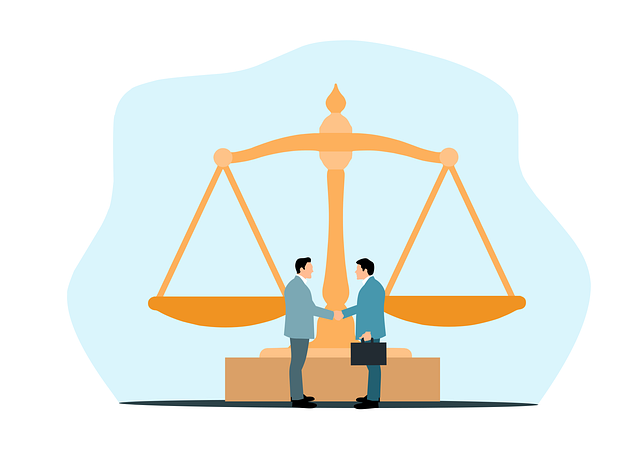RF Regulatory Agency investigations are crucial for upholding wireless communication laws, focusing on unauthorized spectrum use, infrastructure interference, and licensing violations. Understanding common reasons for appeal denials—including insufficient documentation, regulatory guideline misinterpretation, and lack of transparency—is vital for industry players. Meticulous record-keeping and strict adherence to guidelines are key to successfully navigating these processes, which can have significant legal implications if procedural errors or non-compliance are evident. Engaging experienced legal counsel specializing in RF compliance appeals can significantly improve outcomes.
RF Regulatory Agency investigations are crucial for maintaining wireless communication standards. This article guides you through the intricacies of these inquiries, focusing on understanding the process, identifying common reasons for appeal denials, and navigating the appeals process effectively. By exploring strategies for success in RF compliance appeals, businesses can enhance their chances of resolving issues promptly. Learn about the top common mistakes that lead to appeal rejections and discover actionable tips to ensure a smoother journey through regulatory challenges.
- Understanding RF Regulatory Agency Investigations
- Common Mistakes Leading to Appeal Denial
- Navigating the Appeals Process
- Strategies for Success in RF Compliance Appeals
Understanding RF Regulatory Agency Investigations
RF Regulatory Agency Investigations play a pivotal role in ensuring compliance with wireless communication laws and standards. These investigations are typically initiated when there’s a suspected violation, such as unauthorized spectrum use, interference with critical infrastructure, or non-compliance with licensing requirements. Understanding the process is crucial for businesses and individuals involved in the radio frequency (RF) sector.
Common Reasons for Appeal Denial include failures to provide substantiating evidence, inaccuracies in documentation, and non-adherence to regulatory protocols. Across the country, both general criminal defense and white collar defense attorneys have noted an increasing trend in such cases, emphasizing the need for meticulous record-keeping and strict adherence to legal guidelines. Regulatory agencies conduct thorough examinations of evidence and witness testimonies before reaching decisions, often with significant consequences for those found non-compliant.
Common Mistakes Leading to Appeal Denial
Many individuals and businesses involved in RF (Radio Frequency) regulatory compliance often find themselves on the wrong side of an appeal denial when they make certain mistakes during investigations. Understanding the common reasons for such denials is crucial for navigating the complex landscape of RF regulations. One of the primary issues leading to denial is failure to provide comprehensive documentation, including design specifications and testing records, which can lead to questions about the integrity of the reported data.
Another frequent mistake is misinterpreting or ignoring regulatory guidelines, resulting in non-compliance with standards set by the RF Regulatory Agency. This may involve using unauthorized frequencies or failing to obtain necessary licenses. Moreover, a lack of transparency during investigations, where individuals or companies withhold information or evidence, can also lead to denials, especially when there’s evidence of intent to evade regulations, which is often viewed as a white-collar defense matter and may trigger general criminal defense considerations in severe cases, throughout all stages of the investigative and enforcement process.
Navigating the Appeals Process
Navigating the appeals process is a crucial step for individuals or companies facing RF (Radio Frequency) regulatory agency investigations. It provides an opportunity to challenge decisions made during the initial stages of the investigative and enforcement process, especially when dealing with complex technical matters. Understanding the common reasons for appeal denial is essential for preparing a robust case. Many appeals are denied due to procedural errors, insufficient evidence, or failure to address the core issues raised by the regulatory agency. For his clients, it’s vital to engage in meticulous record-keeping and present well-structured arguments throughout all stages of the process, including any pre-hearing conferences and formal hearings.
White-collar defense strategies often play a significant role in successful appeals. Legal teams must demonstrate that their clients have complied with relevant RF regulations and, if violations occurred, prove they were unintentional or resulted from reasonable interpretations of the laws. Effective communication of these defenses is key to reversing appeal denials, ensuring fairness in the face of technological and regulatory complexities.
Strategies for Success in RF Compliance Appeals
When navigating RF Regulatory Agency investigations, understanding common reasons for appeal denial can significantly improve your chances of success. One of the primary areas where appeals fail is due to technical violations or non-compliance with strict regulatory standards. Ensuring that all equipment and processes adhere to the specified guidelines is crucial. Failure to provide comprehensive and accurate documentation during the initial investigation often leads to denial, emphasizing the importance of meticulous record-keeping.
Additionally, a lack of thorough understanding of the regulations or intentional misrepresentation of facts can result in a denied appeal. For his clients, a robust legal strategy involves proactively addressing these issues. Engaging experienced legal counsel specializing in RF compliance appeals is key. They can navigate complex regulatory landscapes and craft compelling arguments to avoid indictment, ensuring that your rights are protected throughout the process.
RF Regulatory Agency investigations can be complex and stressful, but understanding the process and common pitfalls can significantly improve your chances of a successful appeal. By recognizing and avoiding the typical reasons for appeal denials, such as non-compliance with regulations or inadequate documentation, you can strengthen your case. Navigating the appeals process effectively, with strategic planning and meticulous attention to detail, increases your odds of a positive outcome. Remember, proactive compliance and a thorough understanding of RF regulations are key to steering clear of appeal denials and ensuring long-term success in this dynamic field.






